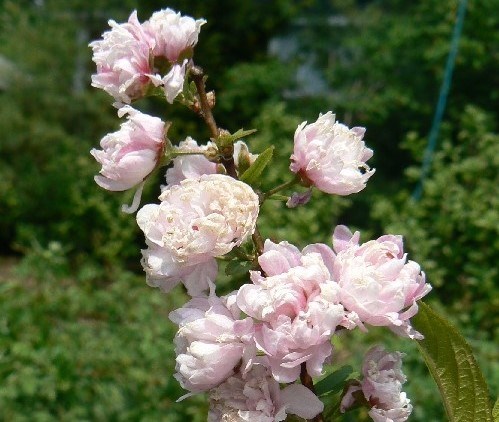Part of a series of articles titled Of Poetry and Nature: Longfellow's Green Rhyme and Verse.
Previous: Longfellow's Nature Poetry
Article

NPS photo
Henry Wadsworth Longfellow is a part of a long, enduring lineage of artists who, in response to the changing world around them, created art. This lineage continues today, and seems all the more important as the atmosphere warms, sea levels rise, and biodiversity dwindles.
Unlike most Romantic nature poetry, which primarily focused on the sentimental beauty of nature, many modern nature poems examine ecological disasters or human’s role in the environment’s decline.
Through poetry, these “eco-poets" explore this ever-evolving relationship between human and nature. Some poems bring awareness to ecological crises or challenge readers to reflect on their own relationship with nature. Still, some are odes of gratitude to nature or elegies for the changing environment, and others are a call to action.
Has art ever been a catalyst for change in your life? Here are a few contemporary poets who could be that catalyst:
Ed Roberson: “The nature poem occurs when an individual’s sense of the larger Earth enters into the world of human knowledge,” Black eco-poet Roberson writes in his essay “We Must Be Careful.” A selection of Roberson’s poems can be found on his page on the Poetry Foundation website.
Kathy Jetn̄il-Kijiner: To “represent the voice of civil society,” Marshall Islander Jetn̄il-Kijiner poet, performer, and educator read her poem “Dear Matafele Peinem” at the UN Climate Summit Opening Ceremony in 2014.
Mary Oliver: Winning the 1984 Pulitzer Prize for poetry—amongst many other accolades—Oliver was hailed as a master of nature poetry who wrote in the tradition of Transcendentalists Emerson and Thoreau. A selection of her works can be found on the her page on the Poetry Foundation website.
Arthur Sze: A second-generation Chinese American, Sze explores climate change in his poetry collection Sight Lines, which won the National Book Award for Poetry in 2019. A selection of his works can be found on his page on the Poetry Foundation website.
Donika Kelly: “I write poems as a means of witness,” Kelly says during her reading for the Longfellow House’s 2021 Virtual Summer Poetry Festival. “Poetry doesn’t enact change. We do.” Learn more about her poetry on her website.
These poets are just the tip of the iceberg! For further reading, check out these sources:
“Poetry can put a human face and emotional experience on abstract natural disaster and climate crises,” Chamarro poet, author, and professor Craig Santos Perez says on the origins of his eco-poetry class in the article "Teaching Ecopoetry in the Time of Climate Change" published in the Georgia Review.
The Sierra Club spotlight 8 Black eco-poets in their magazine, Sierra.
Our local partner The New England Poetry Club announced a new poetry anthology exploring Cape Cod and islands, as well as “the fragility of the environment, the erosion of the shoreline, and the pressure of development impacting the ecosystem.”
The Academy of American Poets' website, Poets.org, invites readers to browse the poetry in their “Environment” filtered category.
The Sound of the Sea
Seaweed
Milton
The Tides
Three Friends of Mine III
The City and the Sea
Angler's Song
To the River Rhone
To the Charles River
To the River Yvette
It’s Not Always May
The Harvest Moon
Woods in Winter
Snow-flakes
The Light of Stars
Voices of the Night
Hymn to the Night
The Galaxy
Part of a series of articles titled Of Poetry and Nature: Longfellow's Green Rhyme and Verse.
Previous: Longfellow's Nature Poetry
Last updated: April 10, 2025